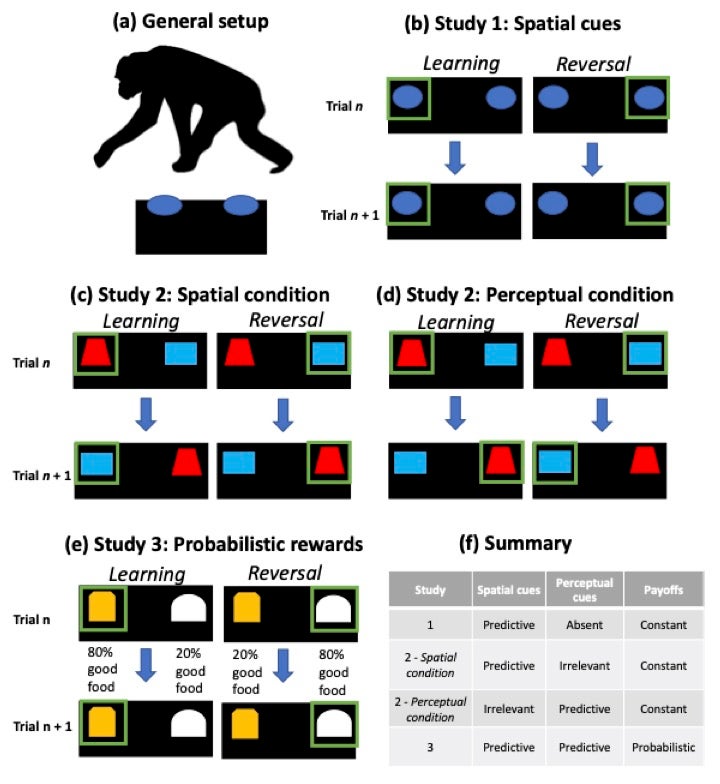Cantwell, A., Buckholtz, J.W., Atencia, R., & Rosati, A.G. (2022). The origins of cognitive flexibility in chimpanzees. Developmental Science, 25: e13266.
[PDF] [Supplementary] [Publisher’s version] Abstract
Cognitive flexibility is a core component of executive function, a suite of cognitive capacities that enables individuals to update their behavior in dynamic environments. Human executive functions are proposed to be enhanced compared to other species, but this inference is based primarily on neuroanatomical studies. To address this, we examined the nature and origins of cognitive flexibility in chimpanzees, our closest living relatives. Across three studies, we examined different components of cognitive flexibility using reversal learning tasks where individuals first learned one contingency and then had to shift responses when contingencies flipped. In Study 1, we tested n = 82 chimpanzees ranging from juvenility to adulthood on a spatial reversal task, to characterize the development of basic shifting skills. In Study 2, we tested how n = 24 chimpanzees use spatial versus arbitrary perceptual information to shift, a proposed difference between human and nonhuman cognition. In Study 3, we tested n = 40 chimpanzees on a probabilistic reversal task. We found an extended developmental trajectory for basic shifting and shifting in response to probabilistic feedback—chimpanzees did not reach mature performance until late in ontogeny. Additionally, females were faster to shift than males were. We also found that chimpanzees were much more successful when using spatial versus perceptual cues, and highly perseverative when faced with probabilistic versus consistent outcomes. These results identify both core features of chimpanzee cognitive flexibility that are shared with humans, as well as constraints on chimpanzee cognitive flexibility that may represent evolutionary changes in human cognitive development.



